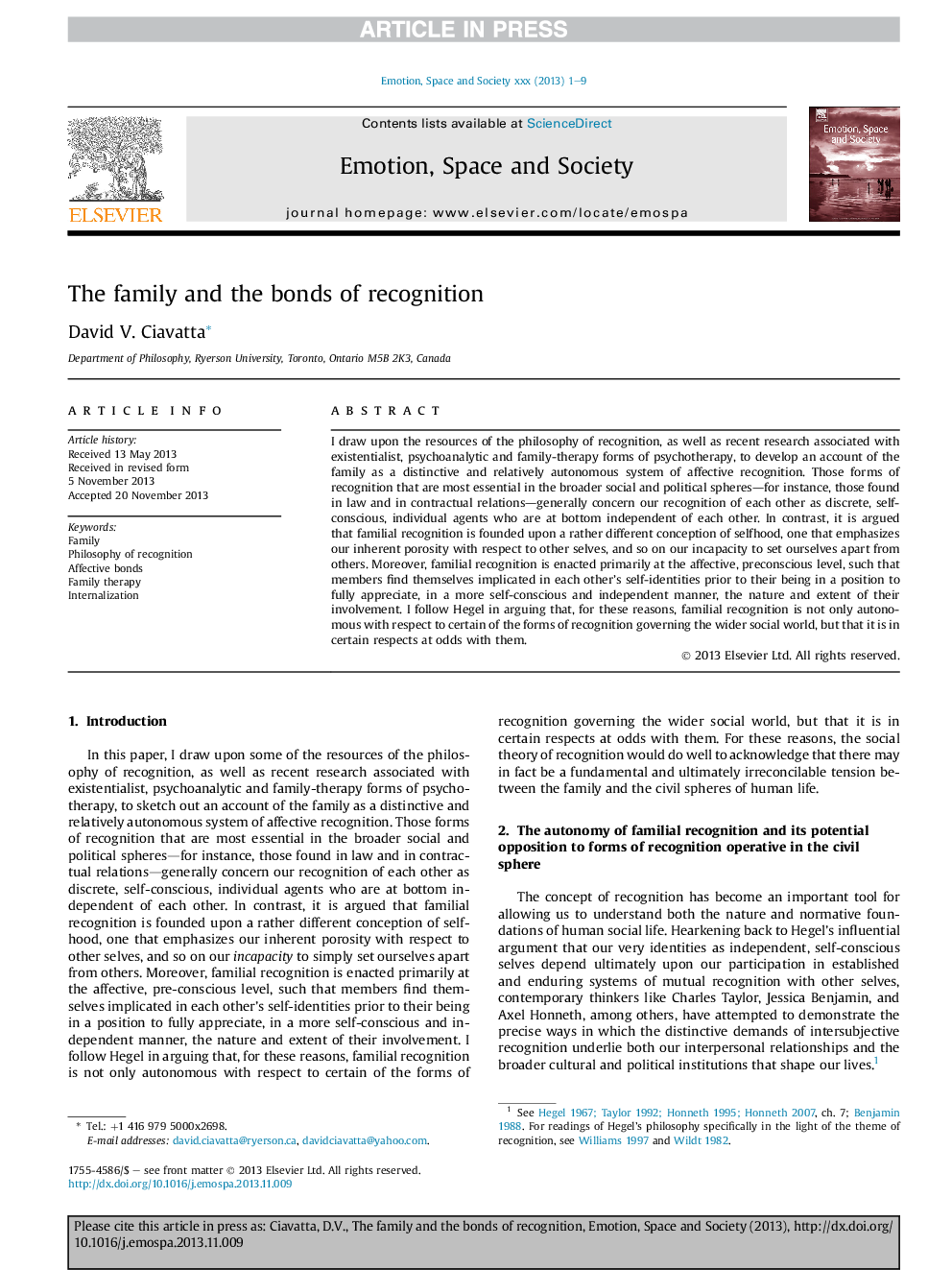| Article ID | Journal | Published Year | Pages | File Type |
|---|---|---|---|---|
| 7323309 | Emotion, Space and Society | 2014 | 9 Pages |
Abstract
I draw upon the resources of the philosophy of recognition, as well as recent research associated with existentialist, psychoanalytic and family-therapy forms of psychotherapy, to develop an account of the family as a distinctive and relatively autonomous system of affective recognition. Those forms of recognition that are most essential in the broader social and political spheres-for instance, those found in law and in contractual relations-generally concern our recognition of each other as discrete, self-conscious, individual agents who are at bottom independent of each other. In contrast, it is argued that familial recognition is founded upon a rather different conception of selfhood, one that emphasizes our inherent porosity with respect to other selves, and so on our incapacity to set ourselves apart from others. Moreover, familial recognition is enacted primarily at the affective, preconscious level, such that members find themselves implicated in each other's self-identities prior to their being in a position to fully appreciate, in a more self-conscious and independent manner, the nature and extent of their involvement. I follow Hegel in arguing that, for these reasons, familial recognition is not only autonomous with respect to certain of the forms of recognition governing the wider social world, but that it is in certain respects at odds with them.
Keywords
Related Topics
Social Sciences and Humanities
Psychology
Social Psychology
Authors
David V. Ciavatta,
